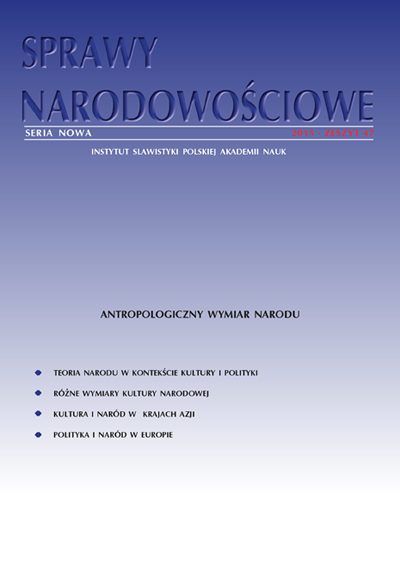Myth and mythologization in ideology and politcs. The mythologization of Japanese identity in the Meiji period
Myth and mythologization in ideology and politcs. The mythologization of Japanese identity in the Meiji period
Author(s): Marcin LisieckiSubject(s): Social Sciences, Sociology
Published by: Instytut Slawistyki Polskiej Akademii Nauk
Keywords: myth; mythology; nation; Japan; Meiji period; emperor’s-politics
Summary/Abstract: Is myth a word or a thought? Searching for the etymological roots proves to show that it is both. However, does it really exhaust all the possible understandings of the myth and does it enable the grasp of its multiple usages? Answering those questions seems very important not only because we do not have the precise definition of a myth but mainly for that reason that we often fail to notice that it functions in all the societies and political regimes playing quite a vital role at the same time. The purpose of this paper is not only sketching the possible answers but also their exemplification through the example of Japan in the period of Meiji. The choice of that example results from that fact it is a conspicuous example of the way in which political elites are engaged in creating symbols and rituals and in shaping national awareness. The examples of the process of shaping national identity presented in this paper are focused on demonstrating two fundamental myths related to the Emperor, the aim of which was to consolidate the national identity.
Journal: Sprawy Narodowościowe
- Issue Year: 2015
- Issue No: 47
- Page Range: 134-146
- Page Count: 13
- Language: English

